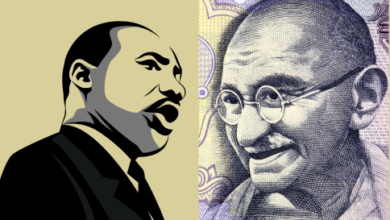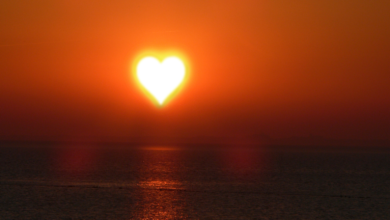The 20th century Carl Jung, one of our great philosophers and psychologists, once said “If our religion is based on salvation, our chief emotions will be fear and trembling. If our religion is based on wonder, our chief emotion will be gratitude.” For thousands of years, we have created religions based on fear. This is particularly true in the Abrahamic faiths but it is true in other religions as well. I remember as a child I was taught that to love God we first had to fear God. When I was misbehaving, as I often did, my mother or a teacher would say “if you don’t stop acting up I will put the fear of God in you.” We hear it in sacred writings talking about trembling before the Lord and fearing the Lord. We attend services on Friday, Saturday or Sunday depending on our beliefs. We attend not so much to be in community with each other or to celebrate God’s love or share our connection through God with each other. Rather we attend out of obligation and fear. In the Catholic world it is considered a mortal sin not to attend Mass on Sunday. So we go to church to check off the box and complete our obligation. We attend out of fear of the consequences of not going. For many we are more concerned about being sent to Hell because we didn’t go to church on Sunday instead of based on how we lived our lives.
Jung was right, we created a theological story that is centered on redemption and salvation. Everything we do, every action we take is about helping us get to Heaven. Christians are taught to believe that we are born in sin and it is only through the fear of God that we receive grace to be saved. We like to pretend that it is by love that we are saved but we act as if it is a result of fearing God. Because we believe that we are born in sin we create rules and regulations, rights and rituals focused on appeasing a demanding God. Our salvation is individualistic. Working towards the “Common Good” is appropriate and right only insofar as it helps my personal salvation. The Franciscan priest and mystic Richard Rohr recently wrote “The true and essential work of all religions is to help us recognize the divine image in everyone and everything” the Imago Dei. It is the teachings of most religions that humans are created in the image of God. When we look around the world today, it is hard to imagine that we are created in the image of God. What image are we reflecting in a world filled with war and hatred of the other, a world where every day 18,000 children die of hunger related disease, where we are destroying God’s wondrous and awesome creation.
It is difficult, if not impossible, to create a world centered on unity and the common good when we believe we are created in the image of a god of separation, punishment and damnation. We are living in a world with constantly changing technology and unprecedented economic disparity. This has left many of us questioning our spirituality and searching for a new way to come together as one. Our spiritual evolution has to start with re-imagining God. Regardless of our faith traditions, one of the first and most important lessons taught is that we have to be in right relationship with God. Depending on our tradition we do so in a variety of ways, anything from private quiet meditations to community worship. Once we are in right relationship with God then we can go and evangelize to help bring the rest of the world into right relationship. In actuality, we first have to be in right relationship with all of God’s creation. It is a relationship that is centered on love and beauty, and the understanding of the interconnectedness and oneness of all creation. Then and only then, through this relationship with God’s creation, will we be in right relationship with God.
Christianity wasn’t always a religion of sin, salvation and redemption. It started out as a nonviolent peace movement. Early followers lived in community with each other. They shared everything and believed in a God of love. They believed the kingdom of God was now and the Incarnation was the reason for creation. With the Incarnation God, through Jesus, could be in relationship with all creation. The theology of sin, the concept of original sin, didn’t start to take hold until the third century and was not part of official church teachings until St Augustine in the early 5th century. At that point, we created a religion centered on a God who was separate, distant and not really all that concerned with the everyday action of creation. As the activist and spiritual teacher Barbara Holme recently wrote: “What this meant during slavery was that the master’s wife could ground her faith in a God far, far away without any concern about attending a lynching with a picnic basket. If we take seriously the notion of a faraway, unconcerned God, there are terrible consequences.”
Thomas Berry, a Catholic priest and one of the founders of the modern-day eco-spirituality movement, said: “We will go into the future as a single sacred community or we will all perish in the desert.” The spirituality that Berry wrote about was not a set of rites and rituals, a list of do’s and don’ts, but rather how we live each and every moment. It is not about being a good Christian or Muslim or Buddhist. It is the understanding that we are all connected to all creation. We all have the “Divine Spark” in us. It is that spark that connects, unites and transforms us. As Rohr reminds us that while Jesus is described as the light of the world in the Gospel of John 8:12, Jesus also describes us as having that same light when he says, “You are the light of the world” in Matthew 5:14.
In the 13th century there were two men who are considered to be among the holiest of holy. One a Sufi mystic and poet, Rumi; the other a Christian Monk, Francis of Assisi. These men had different religious beliefs and rituals, one a Muslim and the other Christian. One only needs to read their writings and poetry and reflect on how they lived their lives to understand that they were talking about the same spirituality. They both viewed God not as some separate distant being who judged and punished us. They saw God as love and all of creation was connected through God/love. Rumi wrote “Nothing I say can explain to you Divine Love. Yet all of creation cannot seem to stop talking about it.” They believed that every act of creation was love. They understood that through love, all creation is connected and part of the one. While they had a different belief in the persona of Jesus, they both modeled their lives after the life of Jesus. Francis’s vision of Christianity is in some ways parallel to the Sufi interpretation of Islam. Interestingly some scholars believe that when Francis had his famous encounter with the Sultan al-Kamal, the leader of the Muslim armies during the 5th crusade, the Sultan thought of Francis as a Sufi Christian. Rumi and Francis understood, and through their lives taught, that we are all part of the same universe. A universe created by God out of love. That we expressed love by being in relationship with all creation. Francis would often go out and preach the Gospel to the birds or trees. When asked why, he would say ‘God told me to preach the gospel to my brothers and sisters and these are my brothers and sisters.’ The 14th century Franciscan theologian John Dun Scotus wrote, “God is the artist, creation is the work of art. Nothing exists out of relationship to everything else.” It is this belief of our interconnectedness with all creation through love that both Sufi’s and Franciscans understood and practiced.
In a recent article “Social Justice without Cosmic Theology is Blind”, the Franciscan theologian and visionary Sr. Ilia Delio, OSF wrote: “God liberates when God becomes fully alive in the human person and in creation. If we want a different world then we must become a different people.” To become different people, we have to reimagine our sacred stories so they are not centered on individual salvation and redemption. Jesus said “you cannot pour new wine into an old wineskin.” So perhaps we do live on the edge of a new age, the beginning of another transformation of humanity.





